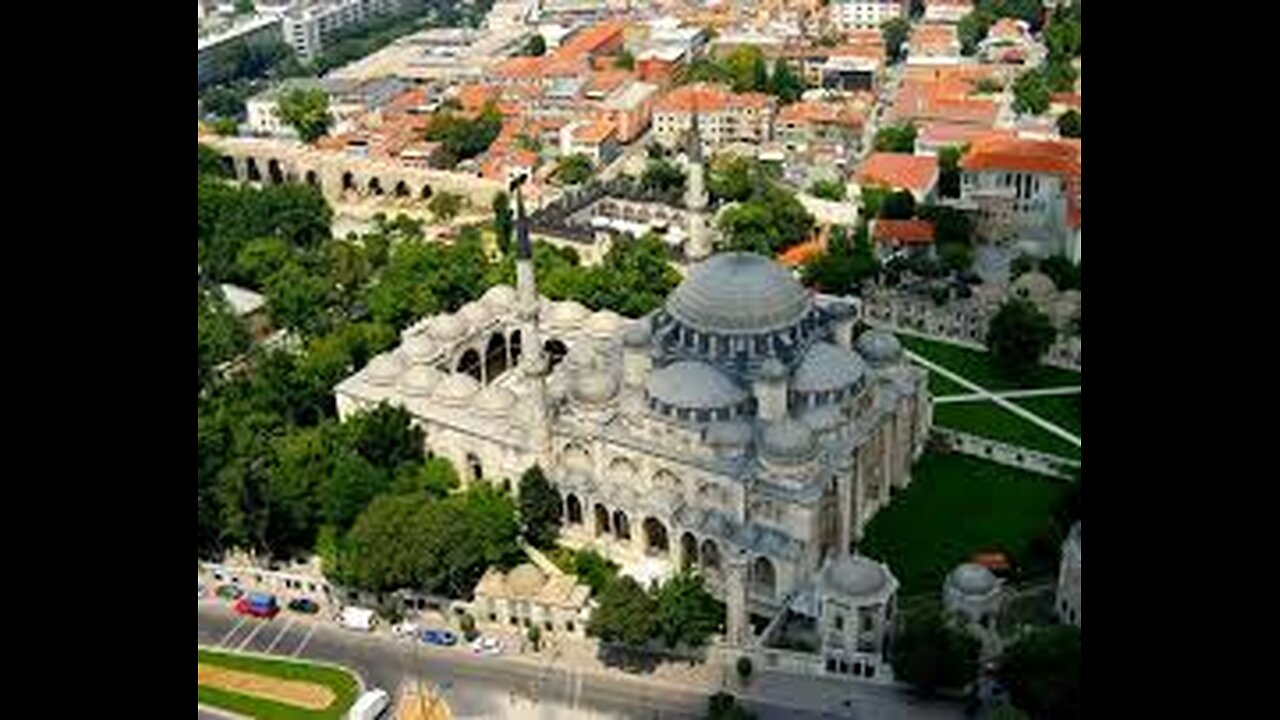Premium Only Content

Backpacking Şehzade Mosque cat mosque in Istanbul, Turkey 2025
The Şehzade Mosque (Turkish: Şehzade Camii, from the original Persian شاهزاده Šāhzādeh, meaning "prince") is a 16th-century Ottoman imperial mosque located in the district of Fatih, on the third hill of Istanbul, Turkey. It was commissioned by Suleiman the Magnificent as a memorial to his son Şehzade Mehmed who died in 1543. It is sometimes referred to as the "Prince's Mosque" in English. The mosque was one of the earliest and most important works of architect Mimar Sinan and is one of the signature works of Classical Ottoman architecture.
The construction of the Şehzade Complex (külliye) was ordered by the Ottoman Sultan Suleiman the Magnificent as a memorial to his favorite son Şehzade Mehmed (born 1521) who died in 1543 while returning to Istanbul after a victorious military campaign in Hungary. Mehmed was the eldest son of Suleiman's only legal wife Hürrem Sultan - although not his eldest son - and before his untimely death he was primed to accept the sultanate following Suleiman's reign. Suleiman is said to have personally mourned the death of Mehmed for forty days at his temporary tomb in Istanbul, the site upon which the imperial architect Mimar Sinan would construct a lavish mausoleum to Mehmed as one part of a larger mosque complex dedicated to the princely heir.
The mausoleum of Mehmed was the first element of the complex to be completed, in 1544. The mosque and the rest of the complex were built between 1545 and 1548. The complex was Sinan's first important imperial commission.
The mosque suffered some damage during the June 2016 bombing that occurred on a nearby street. Some of its windows were shattered.
-
 1:06:09
1:06:09
Man in America
18 hours agoExposing HAARP's Diabolical Mind Control Tech w/ Leigh Dundas
73.5K72 -
 1:47:16
1:47:16
Tundra Tactical
14 hours ago $113.50 earnedGlock Interview From Beyond The Grave//Whats the Future of Home Training??
61.2K12 -
 2:16:35
2:16:35
BlackDiamondGunsandGear
12 hours agoEBT Apocalypse? / Snap Down SHTF / After Hours Armory
27.7K13 -
 14:05
14:05
Sideserf Cake Studio
23 hours ago $19.00 earnedHYPERREALISTIC HAND CAKE GLOW-UP (Old vs. New) 💅
69.5K12 -
 28:37
28:37
marcushouse
1 day ago $10.94 earnedSpaceX Just Dropped the Biggest Starship Lander Update in Years! 🤯
36K17 -
 14:54
14:54
The Kevin Trudeau Show Limitless
3 days agoThe Hidden Force Running Your Life
124K28 -
 2:16:35
2:16:35
DLDAfterDark
12 hours ago $15.46 earnedIs The "SnapPocalypse" A Real Concern? Are You Prepared For SHTF? What Are Some Considerations?
37.9K15 -
 19:58
19:58
TampaAerialMedia
1 day ago $10.96 earnedKEY LARGO - Florida Keys Part 1 - Snorkeling, Restaurants,
50.6K23 -
 1:23
1:23
Memology 101
2 days ago $10.53 earnedFar-left ghoul wants conservatives DEAD, warns Dems to get on board or THEY ARE NEXT
39.6K80 -
 3:27:27
3:27:27
SavageJayGatsby
14 hours ago🔥🌶️ Spicy Saturday – BITE Edition! 🌶️🔥
63.7K7